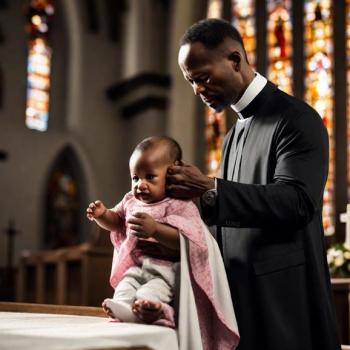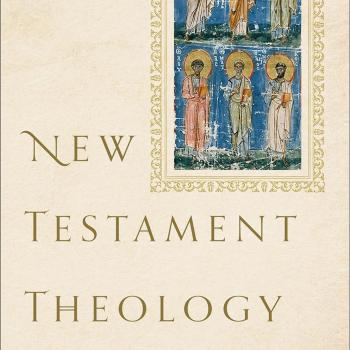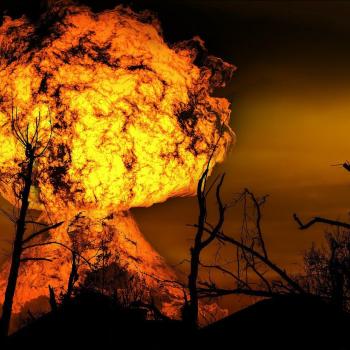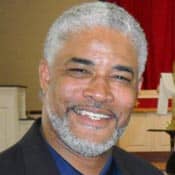"Let's look at it from another angle, let's say that it was you on the needy side of things and GOD turned his back on you, how would you feel and most importantly what would you do?"
Thus did Earlie Harrell, a.k.a. "The Almighty Blood Messiah," issue a challenge to the citizens of Trenton, New Jersey. In his unpublished manifesto, "The Bottomline Perspective," Harrell urges "those of us who have been blessed with the vision to see the truth" to go "into the darkness and retrieve GOD's lost children" from gang violence.
That a high-ranking member of a local Bloods set would seek to be an instrument of peace will doubtless strike some as contradictory. After all, the headlines of our local newspapers—like those in countless communities all around the country—are replete with graphic depictions of horrific crimes committed at the hands of gang members. In the aggregate, as any law enforcement official will attest, gangs control a significant portion of America's underground drug and gun trades. Gangs—particularly those originating in Central and South America and migrating to the U.S.—are increasingly described as "domestic terrorists," with their activities monitored by an alphabet soup of law enforcement and homeland security agencies.
So why should anyone take seriously the overtures of peace proffered by an "original gangsta" with a criminal record, who refuses to lay down his red flag? The answer, Harrell suggests, requires an act of faith: "We must trust someone that we have no reason to trust, we must care for someone that we have no reason to care about, and we must love someone that we have no reason to love."
For his part, the 35-year-old Harrell is attempting to "walk it like he talks it." He has formed an organization called Messiah's Hands Inc. He has developed a personal and financial development curriculum that was created, in part, from principles learned in the drug trade. And he has worked with a coterie of clergy and civic leaders in an effort to facilitate peace.
To be sure, Harrell walks a fine line as he attempts to leverage his "gangsta" roots to bring peace to the 'hood. Many, for example, wonder why Harrell and his students don't leave the gang life altogether. Harrell, however, believes that the only way he can reach other gang members is to remain one himself.
Moreover, he argues that the structure and discipline of the gang culture serve a regulatory function. Being a Blood, he maintains, is an integral part of his identity, as well as that of his students. As such, the meaning of the B.L.O.O.D. acronym—Brotherly Love Overcomes Oppression and Destruction—has tremendous significance for those members who understand the organization's roots. The drug dealing and violence, he tells his charges, are not what it means to be a Blood.
Rather, such activities are an aberration, resulting, as he suggests in "The Bottomline Perspective," from the fact that "we in the urban communities suffer from a negative net worth, meaning that our total liabilities outweigh our total assets. This puts us at a disadvantage because not only are we short on money but, also the proper education as to how to deal with it and how to overcome, when these key elements aren't easily accessible to us." In other words, criminality and violence are a logical—if reprehensible—response when you are "on the needy side of things" and it would appear that "God turned his back on you."
To members of the faith community, the Earlie Harrells of the world represent something more than a threat to our collective peace. They are a challenge to our faith. As an inner-city pastor who is also a husband and father, I must balance my ministry burden for the poor and imprisoned against the needs, wants, and safety of my family. Similarly, although my wife and I are homeowners with a financial stake in the community, our concern for the safety of our neighborhood must be held in tension with Christian love for those who violate its security.
Which is exactly why I have to take Earlie Harrell seriously. There's something deeply attractive about a gangsta who wants peace.
3/10/2011 5:00:00 AM





